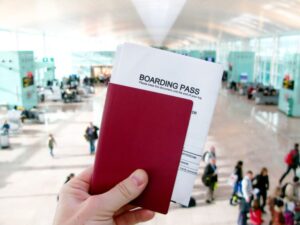Whether you’re applying for advance parole for humanitarian reasons, an employment opportunity, or other urgent needs, understanding the steps involved can make the process more manageable. Below is a step-by-step guide to applying for advance parole.
Confirm Your Eligibility
Before applying, make sure you are eligible for advance parole. This document is typically available to individuals with pending adjustment of status applications, including green card applicants and those holding valid non-immigrant visas.
Complete Form I-131
The next step is to complete Form I-131, the official Application for a Travel Document. You will need to provide personal information, explain the reason for your travel, and submit any supporting documentation, such as evidence of your current immigration status, passport photos, and relevant documents like birth certificates, marriage certificates, or death certificates.
Pay the Filing Fee
Along with your Form I-131, you must pay the required filing fee. The fee varies depending on your immigration status and reason for applying, but it’s essential to check the current fee schedule to ensure proper payment.
Submit Supporting Documents
Your application must include supporting documents to prove eligibility and the need for travel. These can include:
- Copy of your passport and visa
- Evidence of pending green card application or adjustment of status
- Proof of employment purposes or humanitarian reasons
Wait for Processing
After submitting your application, you will receive a receipt notice confirming that your request is being processed. Processing times can vary, often taking several months, so plan accordingly if your travel is not due to an emergency.
Receive Approval
If your application is approved, you will receive your advance parole document, which you must present when re-entering the U.S. Your advance parole approval ensures you can return without losing your adjustment of status.
Working with a Phoenix immigration and naturalization lawyer can help ensure that you complete every step properly, minimizing delays and ensuring the strength of your application. If you need help understanding your eligibility or the application process, reaching out to a professional can be a valuable resource.


